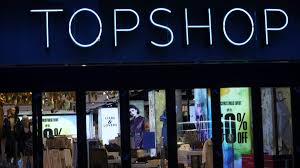The fashion industry is ever-evolving, with acquisitions and mergers shaping the landscape of major fashion brands. In 2024, this dynamic sector continues to witness significant consolidations and strategic partnerships that impact market trends, brand positioning, and consumer experiences. This article delves into the major fashion brand acquisitions and mergers of 2024, exploring the reasons behind these moves, their implications for the industry, and what they mean for consumers and investors.
1. Overview of Fashion Industry Consolidations

1.1. The Importance of Acquisitions and Mergers
Acquisitions and mergers in the fashion industry are driven by various factors, including the pursuit of growth, market expansion, and diversification of product offerings.
- Market Expansion: Brands seek to enter new markets or enhance their global presence through strategic acquisitions.
- Diversification: Mergers allow companies to broaden their product lines and tap into new consumer segments.
- Synergies: Combining resources and expertise can lead to cost efficiencies and innovation opportunities.
1.2. Trends Influencing Acquisitions
Several trends are influencing fashion brand acquisitions and mergers in 2024:
- Sustainability: Brands are increasingly acquiring companies with strong sustainability credentials to align with consumer demand for eco-friendly products.
- Digital Transformation: Companies are merging to leverage digital capabilities and enhance their online presence and e-commerce strategies.
- Changing Consumer Preferences: As consumer preferences shift towards unique and personalized products, acquisitions help brands diversify and cater to evolving tastes.
2. Major Acquisitions and Mergers in 2024
2.1. LVMH Acquires Maison Margiela
In a high-profile move, luxury conglomerate LVMH (Moët Hennessy Louis Vuitton) acquired Maison Margiela, a renowned Parisian fashion house known for its avant-garde designs and innovative approach.
- Strategic Goals: LVMH aims to enhance its portfolio with Maison Margiela’s unique aesthetic and expand its reach in the luxury fashion segment.
- Impact on the Industry: This acquisition strengthens LVMH’s position as a leader in luxury fashion and provides Maison Margiela with increased resources for global expansion.
2.2. Kering’s Acquisition of Reformation
Kering, another major luxury goods group, has acquired Reformation, a leading sustainable fashion brand. This acquisition aligns with Kering’s commitment to sustainability and environmental responsibility.
- Sustainability Focus: Reformation’s expertise in sustainable practices complements Kering’s strategy to enhance its environmental credentials.
- Consumer Benefits: The acquisition is expected to offer consumers more eco-friendly fashion options and support Kering’s sustainability goals.
2.3. PVH Corp and Tapestry Merge
PVH Corp, the parent company of Calvin Klein and Tommy Hilfiger, and Tapestry, known for its brands Coach and Kate Spade, have announced a merger to create a diversified global fashion powerhouse.
- Diversification: The merger allows the combined entity to leverage a diverse portfolio of brands, catering to various market segments.
- Global Presence: This merger strengthens the global presence of both companies and enhances their competitive edge in the fashion industry.
2.4. H&M Group Acquires Acne Studios
H&M Group, known for its fast-fashion offerings, has acquired Acne Studios, a Swedish brand known for its premium fashion and contemporary design.
- Strategic Fit: The acquisition allows H&M Group to diversify its offerings and enter the premium fashion market with Acne Studios’ unique style.
- Market Expansion: Acne Studios benefits from H&M’s extensive distribution network and global reach.
2.5. Farfetch Partners with Net-a-Porter
Farfetch, an online luxury fashion retailer, has partnered with Net-a-Porter, a leading online luxury fashion platform, to create a combined e-commerce powerhouse.
- Enhanced E-Commerce: The partnership aims to provide a more seamless shopping experience and leverage the strengths of both platforms in luxury fashion.
- Consumer Experience: Shoppers can expect an expanded range of products and improved online services as a result of this collaboration.
3. Implications of Fashion Brand Acquisitions and Mergers
3.1. Impact on Market Dynamics
Acquisitions and mergers in the fashion industry have several implications for market dynamics:
- Increased Competition: Consolidations can lead to heightened competition among fashion brands, influencing pricing strategies and product offerings.
- Market Concentration: Mergers may result in increased market concentration, affecting consumer choices and brand diversity.
3.2. Effects on Consumers
Consumers are directly affected by fashion brand acquisitions and mergers in various ways:
- Product Range: Acquisitions can lead to an expanded range of products and improved quality as brands leverage combined resources.
- Pricing: Market consolidations may impact pricing strategies, potentially leading to changes in product pricing and availability.
3.3. Implications for Investors
Investors need to consider several factors when evaluating the impact of fashion brand acquisitions and mergers:
- Financial Performance: Mergers and acquisitions can influence the financial performance of the involved companies, affecting stock prices and investment returns.
- Long-Term Growth: Strategic acquisitions are often aimed at long-term growth, and investors should assess the potential for future returns and market expansion.
4. Future Outlook for Fashion Brand Acquisitions

4.1. Continued Consolidation
The fashion industry is likely to continue experiencing consolidation as brands seek to enhance their market positions and adapt to changing consumer preferences.
- Strategic Acquisitions: Future acquisitions may focus on acquiring brands with innovative technologies, sustainability credentials, or niche market appeal.
- Global Expansion: Companies may pursue international acquisitions to strengthen their global presence and tap into emerging markets.
4.2. Emphasis on Sustainability and Digital Innovation
Sustainability and digital innovation will remain key drivers of acquisitions and mergers in the fashion industry.
- Sustainable Practices: Brands are expected to acquire companies with strong sustainability credentials to meet consumer demand and regulatory requirements.
- Digital Transformation: Mergers that enhance digital capabilities and e-commerce strategies will be crucial for staying competitive in the evolving fashion landscape.
5. Conclusion
The fashion industry in 2024 is witnessing significant changes through major acquisitions and mergers, reshaping the market and influencing brand dynamics. These strategic moves are driven by factors such as market expansion, diversification, and sustainability. As major fashion brands consolidate and form new partnerships, consumers and investors alike must stay informed about the implications and opportunities these changes bring. With a focus on sustainability and digital innovation, the fashion industry is poised for continued evolution, offering exciting prospects for the future.


